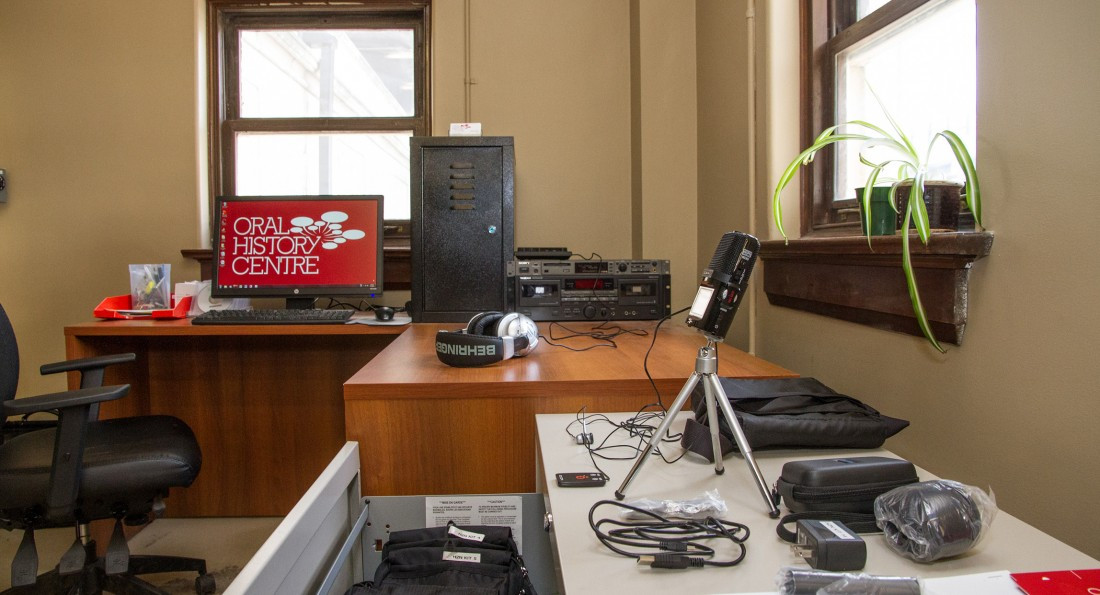Don’t lose your history
Workshop aims to teach students how to digitize their old recordings
Students can now preserve the history of their grandparents and easily share them with friends.
Kent Davies is an audio technician working for the Oral History Centre at the University of Winnipeg (U of W). He’s running a workshop on how to take analog media recordings (cassettes and reel-to-reel, among others) and turn them into digital recordings that can last forever.
Davies says this is important because, as technology advances, old media players that play things like cassettes will become harder to find, and the ones that do still exist might destroy a piece of history.
“Technology changes rapidly,” Davies says. “If you do have old VHS tapes or recordings, it’s important to digitize and come up with a plan on how you’ll preserve those for years to come … There’s so many people who come to me, and it’s an afterthought … then it takes me months to find a device to play that microcassette well enough to not destroy the tape inside.
“It’s important to do that now rather than later.”
According to Davies, the professional way to translate an old recording into a digital one is finding something that can play your old cassette, connect the player using a gold XLR cable to a connected media device that digitizes the tape, then play the tape while recording on a computer or laptop.
While playing the tape, there is always a risk that the cassette player will “eat” the tape and cause damage or even destroy the recording. The challenge is finding a player that won’t do that, as old media devices are becoming increasingly hard to find as new technology becomes available.
Kimberly Moore, the program coordinator for the Oral History Centre, says the biggest problem with storing history on old media such as cassettes is making sure recordings of family members and historical interviews are not lost.
“Part of transferring those skills is transferring this idea that they are capable of doing this, and that all the cassette tapes that are in the attic or stuck in the closet are not relegated to the past,” Moore says. “The goal is that all of that work doesn’t need to fall into oblivion.”
Davies says oral history told by the people living during the time it was recorded offers new insights into the past. But increasingly, people are recording their thoughts less, and that’s a disservice to history as a whole.
“We’re at a weird crossroads where we have a tremendous amount of technology, but we’re underutilizing how we collect history, because how history has been collected and researched is still back in these old school ideologies,” Davies says. “The written document is most important … on paper they say ‘here’s a document, here’s a number,’ but it doesn’t tell you why we should care. Storytelling is very important.”
This workshop will be held on Nov 24 at 6 p.m. The fee is $60 (20 per cent off for Oral History Centre members). To register for the workshop, visit oralhistorycentre.ca.
Published in Volume 71, Number 12 of The Uniter (November 24, 2016)







